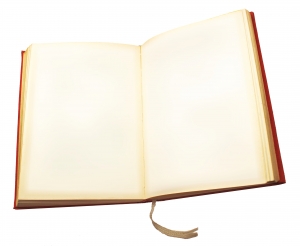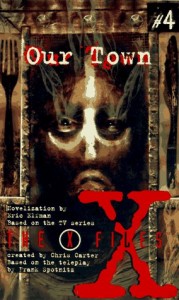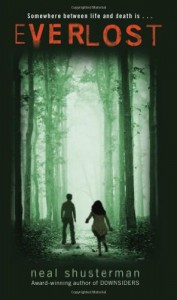For the past ten years, I have been so blessed to travel all over the country, but stop!
Better than travel?
All the people I’ve met.
I have been so lucky to meet so many people! Who have helped me. Who have loved me. Whom I have loved. Writers are strange creatures, part dreamer, part warrior, neurotic, powerful, but so wonderful. And so I’m going to haphazardly jot down some of my favorite people (not all mind you).
Before I started seriously down the path? Before 2006?
I only had three fans: Peter Chittum, Don Bauman, and Steve Jankowkski. But they were lovely fans, and they read my books before I knew what I was doing. Peter emailed saying Disney would buy up the rights to one of my books just ensure a scene never, ever saw the light of day. I took that as a grand compliment.
Don, ever the idea guy, gave me enough ideas to write stories for the rest of eternity.
And Steve, oh Steve, one time told me I gave just enough information to fire his imagination into a frenzy.
Becky Hodgkins read every word of my epic 500K epic about every person who had ever lived and every place possible. She was nice enough to critique me, and when I fought back, she said, “Fine, don’t change it, but you’re going to bore your readers.” She was right.
And then, 2006.
My first critique. A cold night in January of 2016. A Monday night. Afterwards, I couldn’t sleep. Tuesday morning, I had to call someone because I was so shattered. And who did I call? Lucinda Gerlitz. I haven’t spoken to her for ten years, but Lucinda was so kind. She said, “Aaron, sometimes people have to say something, so they talk about stuff that really doesn’t need to change.” And she said, “You are going to be published. The quality of your writing will ensure you a future in publishing.”
Lucinda Gerlitz. Thank you.
Well, Lucinda and bunch of the Evergreen Critique group split off and left me alone with Diane Dodge and Jan Gurney.
And they made me a writer. Lucinda thought I was good, but undisciplined. Diane Dodge put me on a leash while Jan Gurney cheered me on.
“Aaron,” Diane would say, “you only get to say something once. Not three times. Pick your favorite, I don’t care what it is, but write what you want to say once.” I’d glance at Jan, who would nod and wince and say, “Sorry, Aaron. But Diane’s right.” She was.
And then I went to Big Sur in March of 2006.
Andrea Brown told me the publishing world is always on the brink of utter ruin. Always. It is today. It was ten years ago. It was a hundred years ago. It will be in a thousand years.
Barry Eisler told me I needed to study story structure. He was right.
Laura Rennert was chosen by God to be the hammer of destiny. It was bound to happen to me. I’m glad it was her.
David Spieselman, told me he wasn’t going to stand around and watch me talk shit about my writing. I was saying how shitty of a writer I was, and he said, and I quote, “Why are you fucking yourself? I don’t want to stand here watching you fuck yourself.” It was the Holy Spirit talking through him. It was the divine voice of the universe trying to jostle me out of my selfish self-loathing. Sorry, Diane, but I just said the same thing twice.
If Laura Rennert was the hammer of destiny, Linda Rohrbough was the valkyrie who delivered my broken soul to Valhalla, and to the houses of healing there. She gave me her rules of writing. She told me the secrets of the game. She literally taught me how to dress to be a writer. Now her name is Linda Houser, and it’s a better name. Linda is safe, as safe as houses. She has been my mentor and will always be my friend.
At the Evergreen II critique group, I met Andrea K. Stein. She became my roommate, my road dog, and now my co-author. I thought for sure she was a vampire because she has packed in several lifetimes of adventure in this one. And still we room together. And still we walk this road.
Since I was in an RMW critique group, I needed to go to the RMFW Gold Conference. There I met Chris Devlin. Sister. Comrade. Cheerleader. Task master. I use her for all my copy-writing. I don’t feel right if Chris Devlin doesn’t usher a book out into the world. If I had to choose one person in this world to watch over my soul, I would give it to Chris Devlin. She would take good, good care of it.
RMFW changed my life in a lot of ways, but it really started with Jeanne C. Stein. She is a very patient woman. Every year, I would ask to join her very illustrious critique group. Every year, she would smile, shake her head, and shrug. Sorry. And then? In 2011, at RMFW, I asked, and she said, “Maybe, send me your stuff.” I sent her the first chapter of The Never Prayer and that was it. I joined the PSG Critique Group, where I hung out with Mario Acevedo, who’s like the wise-old uncle, who taught me there is only one rule to be a writer, and that is to be gracious. He’s right. And Warren Hammond. I’ve been with the PSG Critique group for five years. For five years, I’ve had access to the one of the sharpest minds in Colorado. I am awed by Warren, and I feel lucky to have him look over my writing.
While being a part of that critique is amazing, it’s because of Andrea K. Stein and Chris Devlin that I got published. I entered into a contest with each of them. Whoever got to fifty queries first won. I won. Crescent Moon Press found me.
Christine Ashworth talked to me on the phone all about CMP. She wanted me to make sure I knew what I was getting into. Out of all the authors I approached to talk about CMP, Christine was the one who agreed to talk to me, a total stranger.
Lin Browne – she was the first editor to take a chance on me. She loved my book. We would rejoice in each other as we went through drafts. I loved her comments. She loved my writing. It was the best possible first editing experience. And she wrote to me, “Of course your book is going to do well. You’re such a good writer.” We never talked on the phone. We only emailed. To think, one of the most pivotal people on my writing journey is someone I’ll most likely never meet.
Marlene Castricato and Steph Murray, the women behind Crescent Moon Press. Thank you.
So my first book ever was coming out.
And who did I meet at Pikes Peak Writers? Bree Ervin. She was my first publicist, my only publicist, and she is my friend. And she is now editing some of my Indie stuff. She has helped me with every aspect of my writing life. I feel so blessed and lucky to know her. If you haven’t met Bree, look to Longmont, Colorado. That light you see? That is Bree.
In 2012, at the RMFW Conference, my ribbons nearly reached to the floor. I got a Pen award. First sale. I was a finalist in the RMFW Gold contest. It was a night of miracles. And there I met Giles Hash, Emily Kay Singer, and Michelle Graham. You know them as the Beyond the Trope podcast. But for me, I’ll always think of them as new authors, on a mission, to pull down the stars. Giles and I would go out to breakfast, early morning on Colfax, eating grease and talking about publishing. Emily took a turn as my personal assistant, which is a wretched job. And Michelle, man, I hope when Michelle becomes reach and famous, she’ll return my calls.
I was out in the world. I had my books being read by like, real people. I started doing events and starting speaking, but you know what? I wouldn’t be speaking at all, anywhere, it if hadn’t been for Linda Houser and Sue Mitchell.
Linda talked me into submitting my Writing Success through the Twelve Steps workshop for PPWC, but it was Sue Mitchell, faculty director for PPWC, in 2011, who, agreed to give me a try. I got a precious Friday afternoon slot, and it was probably one of the best days of my entire life. I killed it. Then Karen Albright Lin gave me the ultimate compliment. She said, “You were one of the best speakers I’ve ever seen. You could totally be a keynote speaker at a writing conference.” I was flying. Karen travels all over the world teaching classes, she knows about such things.
Through another gig, I met Cody May, a young man publishing books and selling them by any means necessary. Basically, he’s a good-looking guy, and so he stands by his books, young women flock up, buy his books, blush, and fall in love. Cody May and I started the Colorado Author Interview Circle together, and man, I can’t wait to see what he does next. He is a firecracker, that guy.
Kara Seal and Leah Parker? Yeah, they are crazy librarians who I met at PPWC along the way. We have breakfast. We dream entrepreneurial dreams. And we are fellow Penny Dread Tales authors.
So I’d been doing events all over Colorado, but I needed to expand. I needed to go to the show, the Romantic Times Reader’s Convention.
If I talked about the all the amazing people I met at the Romantic Times Convention, I’d be here all day and night. Again, I have to do a few.
Karina Cooper taught me steampunk. It has very little to do with the color brown.
L.A. Witt reduced me to tears, telling me a story about someone who is transgender who read one of her books and it changed their life
Elizabeth Cheryl. The minutes I’ve spent with you in this life have been so precious to me. You have no idea.
And then, hold it. Kendall Grey, Heather Savage, Jenna Barton, and Rie Warren. Hold on a minute, you slags. I’m getting there. We met in the spring of 2012 (most of us), and I’ll get there.
Angie Hodapp. Also in the spring of 2012, with my book about to hit the world, Angie Hodapp joined Chris Devlin and I at a Village Inn off Wadsworth, and Angie said, “Everyone is afraid. At the three in the morning, if you’re awake and terrified, you are not alone.” Those Tuesday nights at the Village Inn, flirting with the waiters, will live forever in my memory. And one of the best classes I ever taught at RMFW was with Angie. We talked about theme. She brought all the content. I brought the color. It was epic! She is one smart cookie and a great teacher.
So my first book was out. Now, I needed a second one.
Deb Courtney and I talked at PPWC in 2012, and she asked about a suicide book I’d talked about years before. I asked her if she’d like to take a look. She’d opened Courtney Literary, and I thought she might help me get something published. She loved the book. She gave me brilliant edits. Long Live the Suicide King lives (pun intended) because of her. Thank you.
But first…but first, Quincy J. Allen happened to me. Thanks to Rose Beetem, who has been so kind to me, got me on a panel at Mile-Hi Con. She let me do a talk with Jason Heller about the movie and music of Heavy Metal, and she let me do a god panel. I love talking about Him, Her, It, They. God(s) that is.
Real quick, first, that talk with Jason Heller about Heavy Metal will be one of the high points of my convention life. Without a doubt. It’s a one way ticket to midnight…
Quincy J. Allen showed up to my God panel, and he said I did a good job moderating. We talked. And though I was scared of his success and Mohawk, I had the idea we might become friends. What happened? We became not just friends, but road dogs.
His girlfriend, Kathryn S. Renta, gave me another break that changed my writing career. It was a Sunday night, and I was checking Facebook, when she messaged me. She suggested I write a story for the Penny Dread Tales III, which Quincy edits. I wrote “The Dirges of Percival Lewand” which garnered praise and solidified my standing in the local Colorado writing community. It’s because of Kathryn, who quotes the exact same lines of Shakespeare that I do, that I wrote that story. And Quincy loved it. He wants to write a screenplay. I’m open.
In 2013, Jenna Barton, one of my RT friends, reached out to me and suggested in 2013 I write a story for Fiction Vale, a new fiction magazine. So I wrote two stories and the pay was good. Jenna Barton is a true artist, a wonderful writer, and an adventurer into the realms of the soul. And while I didn’t have a book come out in 2013, I did have several short stories thanks to Jenna and Quincy.
I gotta say, 2013 was rough. Odd-numbered year. In 2014, Long Live the Suicide King was released and I did a little book tour. In Minnesota, I signed a contract with Staccato Publishing, run by another of my RT friends, Heather Savage. Heather Savage has a passion for writing and books, and once again, I had a great editor to work with. I loved our phone calls. Elizabeth’s Midnight is such a good book because of her insights.
Wait a minute, 2013 wasn’t such a bad year. At Mile-Hi Con (thank you, Rose Beetem), I talked with Peter J. Wacks in the smoking section. I told him about a new series I was working on. It was this crazy idea about cowgirls with machine guns on a post-apocalyptic cattle drive. He told him to send it to him. In June of 2014, I signed a six-book contract with WordFire Press. I used to go over to Peter’s apartment, bring him Thai food, and we talked and planned. He told me that as an editor, you want to make the smallest changes that will give you the biggest results. He didn’t believe in re-writing whole books if you didn’t have to. One sentence can change a book for the better.
Which swirls us around 2015 and my first Superstars conference and my foray into a new adventure. I started working local booths. And I have to say, when I think of working a show, I think of Travis Heermann. He’s in New Zealand. He’ll come back. Colorado will be better for it.
Working shows, going to Superstars Writing Seminar, I met Lou J. Berger. More about Lou in a minute.
In 2015 I also went to South Carolina to hang out with Kendall, Rie, Heather, and Jenna. Working there, watching Rie work, it’s so nice to know there is someone else in the world who writes like me. Rie doesn’t just write, she bashes words until they beg for mercy. She writes like a force of nature.
While I was enjoying some success, three books, and a series on the way, the terror and sorrow I felt on a daily basis threatened to crush me.
And so I started doing something magical. If I was hit with an emotional bomb, and the writing/publishing world drops bombs often, I would call three people and talk about it three times. I would feel better and sleep that night.
Who are the first people I call to get my three? Kendall Grey is one. She is my sister from another mister. She is so much like me, but more brave, and far stronger. You don’t want to mess with Kendall Grey. And yet, when we talk, she understands me, and I understand her. Together, we are Kendaaron. She’s the better half.
Lou J. Berger is another person I call to talk through my feelings. And he is so esoteric, in the best sense. People tell me my mind works differently. No. Lou’s brain works differently. Wonderfully different. I call him and he helps me see things in a new light. He wrote me a wonderful note that I read every night before I go to bed. It has become a kind of mantra to me. Thank you, Lou.
Mile-Hi Con also gave me David M. Daniel (I’m seeing a theme here, Rose Beetem). I meet and read a lot of new writers, but David’s writing actually made me search for more pages to read because I couldn’t get enough of his Sebastian story. And his editing eye is sharp and merciless. I don’t like to talk on the phone. But with David, I can talk with him for hours. Generally, we talk and I’m either on a stormy highway going seventy or I’m in a King Soopers, so afraid, so tired of the despair. And David says, “Every writer has a sucky part of their story. You’re just in the sucky part right now.”
The Penny Dread Tales anthologies gave me Kathryn and Quincy, but it also gave me Jason Evans. We wrote a story and sold it. We wrote another and got a rejection. We eat breakfast. We talk. He is a wonderful beta-reader and an even better friend. And he’s Catholic. When I’m down, he says, “All suffering is redemptive.” We are both going to heaven. We’ll write books there.
Another new friend, a writer, a seeker, is Jennifer Rose. I met her at the Pikes Peak Writer’s Conference and we hit it off. Then we saw each other, again and again, and we had breakfast at Breakfast on Broadway, which is the best breakfast around. I look forward to us working together.
Again, Mile-Hi Con. I met Sheila Hartney, though we are also Pikes Peak Writer friends. Sheila beta-reads, but more than that, she gives me such hope. There is something about Sheila that makes me believe in the dream. And sometimes believing in the dream is hard. Real hard.
And so, in a few weeks, Dandelion Iron will be released, book one of The Juniper Wars series. It won’t have an acknowledgement section, but the second book will. And dang, a lot of people will show up there. People like Melissa Jankowksi, David Myers, Leah Cary, Mia Kleve, and of course Vivian Trask. All were vital in helping me shape the book. And of course all the folks at WordFire.
I’m at three thousand words. I’m at fifty people. Ish. And again, this isn’t everyone. I have so many more beautiful friends I could talk about. Ian Thomas Healy. Deanna Knippling. James Sams. David Boop. Betsy Dornbusch. Natasha Brown.
Two more.
Dave Butler. I’ve spent three days in your company. I’m hoping this is the start of a beautiful relationship. Anyone who sings my name, well, I dig that.
Laura.
I told my wife I was going to quit writing forever, one day, one of many. And she stopped me. She said, “You have lived most of your life in a fantasy world. Writing and publishing books is the most real thing you can do.”
She didn’t let me quit. She believed in me. She is my partner in crime, and I couldn’t ask for a better partner.
To bring it full circle, I told Becky Hodgkins I was going to quit, one day, one of many. She said words that still haunt me. She said, “You can’t quit writing if you haven’t really tried.”
I’m trying, Becky. And the thing about the writing game, trying means for the rest of my life. Trying means until they throw dirt on me.
That’s fine. I got my road dogs. I have a path, and I got lots of books in me.
Let’s keep trying together.






